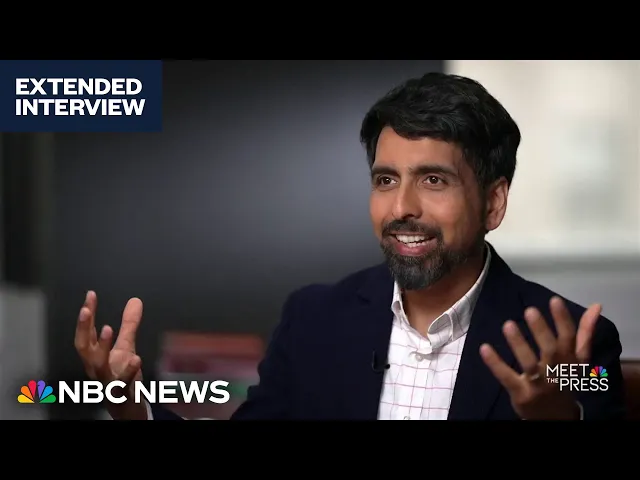Sal Khan says A.I. can help teachers create ‘an exceptional classroom’: Full interview

AI in education: Khan's vision for personalization
Sal Khan, founder of Khan Academy, has emerged as one of the leading voices at the intersection of education and artificial intelligence. In a recent interview, Khan shared his evolving perspective on how AI tools—particularly their new Khanmigo platform—can fundamentally transform teaching and learning experiences. Rather than replacing teachers, Khan sees AI as an amplifier of good pedagogy, creating possibilities for personalization at scale that were previously unimaginable.
Key insights from Khan's perspective
-
AI's primary value in education is enabling personalization—giving every student their own AI tutor that provides immediate feedback, guidance, and support in a way that's impossible for even the most dedicated teacher managing 30+ students.
-
Khan Academy's Khanmigo tool functions as an AI teaching assistant that helps both educators and students—providing personalized explanations, generating practice problems, offering writing feedback, and even roleplaying historical figures for deeper engagement.
-
The technology aims to solve education's fundamental challenge: providing students individualized attention and immediate feedback when they're actually working through problems and developing understanding.
The transformative potential of AI companions in learning
What struck me most about Khan's vision is how it addresses education's persistent "ratio problem." Traditional classrooms force one teacher to divide attention among dozens of students, making truly personalized instruction nearly impossible. Khan's insight isn't merely that AI can automate grading or content delivery—it's that AI can fundamentally change the economics of personalized attention.
This matters tremendously because education research consistently shows the effectiveness of one-on-one tutoring. Studies from University of Chicago's Urban Education Lab found that individualized math tutoring increased learning rates by 2-3x compared to traditional instruction. The challenge has always been scalability and cost. AI tutoring systems could democratize access to personalized learning support that was previously available only to the most privileged students.
Beyond the interview: AI's broader educational impact
While Khan offers a compelling vision, there are dimensions of AI's educational impact worth exploring beyond what the interview covered. The integration of AI tutors raises important questions about data privacy and algorithmic bias. Schools implementing these systems need robust frameworks for protecting student information and ensuring AI systems don't perpetuate existing educational inequities.
A case study worth noting comes from Bakp
Recent Videos
How To Earn MONEY With Images (No Bullsh*t)
Smart earnings from your image collection In today's digital economy, passive income streams have become increasingly accessible to creators with various skill sets. A recent YouTube video cuts through the hype to explore legitimate ways photographers, designers, and even casual smartphone users can monetize their image collections. The strategies outlined don't rely on unrealistic promises or complicated schemes—instead, they focus on established marketplaces with proven revenue potential for image creators. Key Points Stock photography platforms like Shutterstock, Adobe Stock, and Getty Images remain viable income sources when you understand their specific requirements and optimize your submissions accordingly. Specialized marketplaces focusing...
Oct 3, 2025New SHAPE SHIFTING AI Robot Is Freaking People Out
Liquid robots will change everything In the quiet labs of Carnegie Mellon University, scientists have created something that feels plucked from science fiction—a magnetic slime robot that can transform between liquid and solid states, slipping through tight spaces before reassembling on the other side. This technology, showcased in a recent YouTube video, represents a significant leap beyond traditional robotics into a realm where machines mimic not just animal movements, but their fundamental physical properties. While the internet might be buzzing with dystopian concerns about "shape-shifting terminators," the reality offers far more promising applications that could revolutionize medicine, rescue operations, and...
Oct 3, 2025How To Do Homeless AI Tiktok Trend (Tiktok Homeless AI Tutorial)
AI homeless trend raises ethical concerns In an era where social media trends evolve faster than we can comprehend them, TikTok's "homeless AI" trend has sparked both creative engagement and serious ethical questions. The trend, which involves using AI to transform ordinary photos into images depicting homelessness, has rapidly gained traction across the platform, with creators eagerly jumping on board to showcase their digital transformations. While the technical process is relatively straightforward, the implications of digitally "becoming homeless" for entertainment deserve careful consideration. The video tutorial provides a step-by-step guide on creating these AI-generated images, explaining how users can transform...
